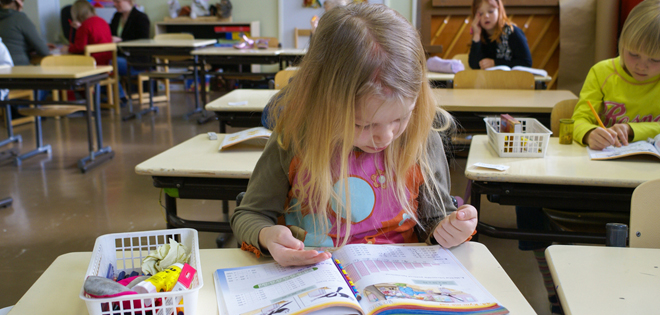Children born at the end of the year are more likely to have special education

A study by Aapo Kivinen shows that children who are born in December are nearly 50 percent more likely to have a partially individualized curriculum in basic education than children who are born in January.
 Photo: Michal Knitl
Photo: Michal Knitl
Researchers agree that the relative school starting age has many effects starting from being good at school to political success. Aapo Kivinen’s study shows that in addition, the relative school starting age influences children’s probability to have an individualized curriculum, which is a form of special education.
The results are based on data on middle school graduates in 1998–2014. By comparing children born in January and December, it is possible to estimate how much the age difference of nearly a year affects the likelihood of receiving special education.
“It is important to study how relative age and special education are connected, because it is not clear if relatively younger children need special education more. Children born at the end of the year may need special support more, or they may receive it because their immature behaviour caused by their age is seen as a need for support”, Aapo Kivinen says.
The relative age effect is stronger for girls and pupils with lower educated parents. On the basis of the results of the study, this is because these children are more likely to start school the year they turn seven.
The number of students in special education has increased during the past twenty years. The share of graduates who have a partially individualized curriculum has also increased from less than a percent to more than four percent in 1998¬2014. In 2014, there were nearly 2,600 such pupils among middle school graduates.
Aapo Kivinen’s study reveals that relative age effect on special education was insignificant from 1998 to 2005. However, since 2005, the gap of a year in the relative school starting age has increased the probability of graduating with a partially individualized curriculum by 2.1 percentage points.
Special education has been reformed several times in Finland in the 2000s.
“Many reforms related to the supply of special education may explain at least some of the trend. In addition, it is possible that the decision to assign an individual curriculum to a student has become more subjective, in which case the relative age also plays a bigger role”, Kivinen says.
Research:
The Effect of Relative School Starting Age on Having an Individualized Curriculum in Finland. VATT Working Papers 104
More information:
Aapo Kivinen, Research Assistant, +358 295 519 513 tai [email protected]
Aapo Kivinen
Local public finance and provision of public services
Press release
Press release
economics of education
education and training
relative age effect
special education

